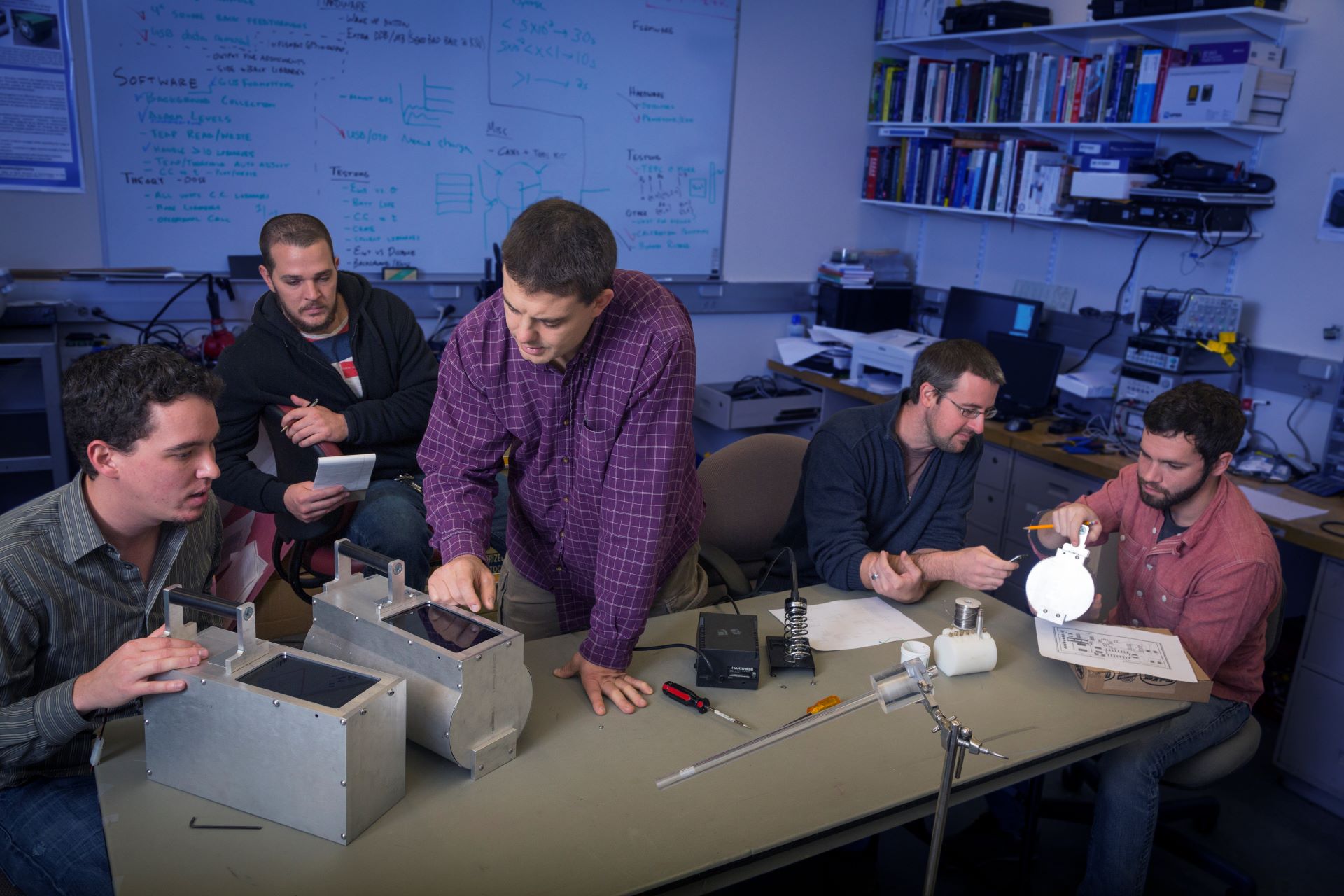Graduate Programs
Master of Science in Physics
Our program helps our students develop skills for their future. Students will be able to integrate their knowledge, experience and critical thinking skills to solve new and challenging problems in your chosen career field. Students are expected to demonstrate an ability to develop or autonomously extend a research project that advances fundamental or applied scientific understanding and communicate effectively with technical and nontechnical audiences with clear and articulate oral or written discourse. Lastly, students learn how to make effective use of diverse information resources such as published scientific literature, technical databases and other forms of authoritative internet-based content.
Natural Sciences Ph.D. in Physics
UMKC offers a Natural Sciences Ph.D. program which takes a multidisciplinary approach to earning a doctorate.
Learn more about the Physics Discipline
Interdisciplinary Ph.D.
(Fall 2025 is the last term that applications will be reviewed for the interdisciplinary program.)
UMKC’s Interdisciplinary Ph.D. program includes Physics as a dedicated discipline. Pursue research in applied electronics physics, materials physics, or extra-galactic astronomy by becoming a student-partner with our faculty in their specific areas of expertise.
Suggested co-disciplines
The broad applicability of physics along with the diverse technical and foundational expertise of our faculty entice many prospective students that have chemistry, geology, mathematics, engineering or computer science as their primary discipline to select physics as their co-discipline.
Research Areas
- Application of condensed matter physics to longstanding electrical engineering problems
- Enhancing the response functions of systems by imposing physical orthogonality
- Free field combination of radiofrequency waves to form useful wavelets
- Radiofrequency component design and integration
- Scattering and absorption of neutrons to extract source/environment information
- Storage and discharge of high voltage and high current by solid-state, magnetic and semiconductor-based systems

